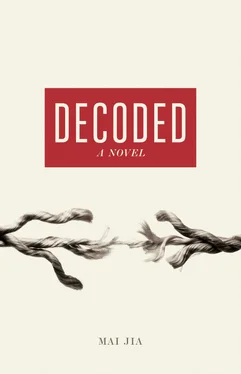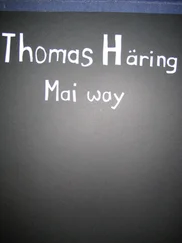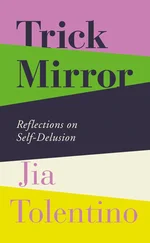Mai Jia - Decoded
Здесь есть возможность читать онлайн «Mai Jia - Decoded» весь текст электронной книги совершенно бесплатно (целиком полную версию без сокращений). В некоторых случаях можно слушать аудио, скачать через торрент в формате fb2 и присутствует краткое содержание. Год выпуска: 2014, Издательство: Allen Lane, Жанр: Современная проза, на английском языке. Описание произведения, (предисловие) а так же отзывы посетителей доступны на портале библиотеки ЛибКат.
- Название:Decoded
- Автор:
- Издательство:Allen Lane
- Жанр:
- Год:2014
- ISBN:нет данных
- Рейтинг книги:3 / 5. Голосов: 1
-
Избранное:Добавить в избранное
- Отзывы:
-
Ваша оценка:
- 60
- 1
- 2
- 3
- 4
- 5
Decoded: краткое содержание, описание и аннотация
Предлагаем к чтению аннотацию, описание, краткое содержание или предисловие (зависит от того, что написал сам автор книги «Decoded»). Если вы не нашли необходимую информацию о книге — напишите в комментариях, мы постараемся отыскать её.
Decoded — читать онлайн бесплатно полную книгу (весь текст) целиком
Ниже представлен текст книги, разбитый по страницам. Система сохранения места последней прочитанной страницы, позволяет с удобством читать онлайн бесплатно книгу «Decoded», без необходимости каждый раз заново искать на чём Вы остановились. Поставьте закладку, и сможете в любой момент перейти на страницу, на которой закончили чтение.
Интервал:
Закладка:
A full table of Go was what triggered our conversations. Full of pride, he would tell me of the benefits of Go: how it could drive away loneliness, how it exercised the brain, nourished the soul and extended one’s life. After relating to me the many advantages of playing Go, he summed it all up by saying that his love of the game was actually an occupational hazard. ‘With respect to those working in cryptography, our collective fate is naturally tied up with the various games of chess — especially those with commonplace lives. Finally they will all be seduced by the art of chess, just like pirates and drug pushers are seduced by their own wares. It is just like how some people become interested in good works in their old age.’
That was how he explained it. His analogy allowed me to picture some form of reality, but. . ‘Why did you emphasize a commonplace life?’ I asked.
Mulling it over for a moment, he said, ‘In the case of very talented cryptanalysts, you could say that their passion and intellect is expressed through their work. In other words, their genius is used — by themselves and by their work. A soul spent in such explosive fashion tends toward the peaceful, the contemplative; it lacks the stress of having to repress oneself; it lacks anxiety about withering away. Without such pressure, naturally there is no desire to unburden one’s heart. Such people do not anxiously crave a new life. Therefore, for most geniuses, their later years are filled with memories; they listen attentively to the beauty of their own voice. But for those with commonplace lives, it is different. Those of talent, members of the inner circle, would refer to us as the fairer sex. It meant that we possessed elements of genius, but could never perform such work. We spent our years searching, feeling oppressed — filled with talent but never able to truly demonstrate it, to release it. For this kind of person their later years possesses no memories of glory; there is nothing to sum up. What are they to do in their so-called golden years? Only what they have done their whole lives: they continue to search in vain for something to do, unconsciously trying to find some way to put their abilities to use; enacting the ultimate and final struggle. This is the meaning of my infatuation with chess, the first meaning. The second meaning — well, if you look at it from another point of view, geniuses put in an enormous amount of time assiduously studying, pouring their hearts out, aiming to pass through an incredibly narrow path in order to reach the peak, and even if their hearts contained some other desire, a wish to do something else, they cannot: the path their minds are to traverse has been set, they cannot be torn away from it [his use of the word ‘torn’ filled me with a sense of horror, as if my whole spirit had been taken hold of by some unknown force]. Their minds, their mental powers, were already unable to move in a natural and unrestrained manner: they could only move forward, marching ever deeper along that same narrow path. Do you know the roots of madness? Genius and madness issue forth from the same track; both are brought about by bewitchment. Would you fancy playing a game of chess with them in their old age? Impossible, because they can’t!’
In a slightly halting voice, he continued, ‘I’ve always believed genius and madness are two sides of the same coin: they are like your left and right hands, both reaching out from this human body of ours, only they are walking different paths. In mathematics, there are positive infinities and negative infinities; in a sense, you could say that a genius is a positive infinity whilst a madman or a fool would represent a negative infinity. But in mathematics, both positive and negative infinities are still infinites: numbers without end. Therefore I’ve often thought that one day, when this human race of ours reaches a certain point of advanced development, perhaps the madman will become like the genius: a man of outstanding talent, a wise and able individual capable of making contributions to society that astound one and all. Of course, I needn’t speak of anything else, just ciphers. Imagine for a moment if we were able to march the same road as the madman (which is really no road at all) and devise a cipher; then it goes without saying that there would be no one capable of deciphering it. Actually, developing ciphers is a sort of madman’s work, it pulls you close to insanity and to genius. Or you could put it the other way round: in terms of composition, genius and insanity are made from the same stuff. It’s really surprising! Thus, I’ve never discriminated against madmen. I believe that perhaps, somewhere buried in their insanity, lies something to be treasured, something that we just can’t get at, at least for the moment. They are like a secret cache of mineral resources, waiting for us to extract them.’
Listening to this old man go on, I felt as though my spirit had been cleansed; my mind had never been so purified before. It was as though my mind had been encrusted with dust and grime and his words had served as a torrential flow of water scouring them away, allowing my tarnished mind to exhibit a new glow. I felt at ease, really quite happy! I listened attentively, and appreciated the subtle taste of his logic. I drank it in and became intoxicated. It seemed as though I had lost my train of thought; then at long last my eyes fell on the black and white stones on the Go board and I came to, finally asking, ‘Then how is it that you have come to be infatuated by Go?’
He shifted in his rattan chair. Then, in a tone of voice at once mocking and cheerful, he said, ‘I am just one of those with commonplace lives.’
‘No,’ I retorted, ‘You deciphered BLACK: how could you be common?’
His gaze became fixed, his body straightened up and the rattan chair creaked and moaned underneath him as if trying to ascertain whether his weight had increased or not. A moment of stillness passed between us and then he raised his eyes to look at me. In a serious tone he said, ‘Do you know how I deciphered BLACK?’
I shook my head thoughtfully.
‘Would you like to know?’
‘Of course,’ I replied.
‘Then I shall tell you. Rong Jinzhen helped me do it!’ It seemed as though he were calling out to him. ‘Ah, no, no, I should say it was Rong Jinzhen who deciphered BLACK: my fame is unwarranted.’
‘Rong Jinzhen. . ’ I was astonished. ‘Isn’t he. . didn’t something happen to him?’ I didn’t say that he had gone mad.
‘Yes, that’s right. Something did happen to him: he went mad.’ The old man continued, ‘But you’ll never guess: it was in the midst of this destruction, in his ruin, that I saw the hidden secret of BLACK.’
I felt my heart being cleaved in two. ‘What do you mean?’
‘Ah. . that’s a long story!’ He exhaled leisurely, his gaze moved away from me, he became immersed in memories of times past. .
6
[Transcript of the interview with Yan Shi]
I don’t remember exactly when it was — perhaps 1969, or maybe 1970 — but in any case, it was winter when Rong Jinzhen lost his mind. Prior to this, he had served as our section chief and I was his immediate subordinate. It was a big department — we were at our peak: there must’ve been more than X number of people in our section. Now it is smaller, much smaller. There was also another section chief there at the time, a man by the name of Zheng. He’s still there; I have heard he is now the Director. He is also quite an astounding individual. He took several bullets in the leg, causing him to walk with a limp, but it never affected his rise up into the echelons of the elite. Rong Jinzhen was discovered by him; they had both studied mathematics at N University. Their relationship was good; it was said that there were even some family connections. Before him, there was another section chief, from the old National Central University; a student of some renown, who during the War of Resistance cracked many of the ciphers used by those Japs. After the revolution, he joined Unit 701 and continued to work on special assignments. Sadly, PURPLE drove him mad. All told, we were fortunate to have had these three section chiefs; they allowed us to achieve the most glorious results. And I do mean glorious, I’m not exaggerating at all. Of course, had Rong Jinzhen not lost his mind, I daresay we would have accomplished even more; but ah, well, with what happened. . you never know, do you? The most unexpected things happen sometimes.
Читать дальшеИнтервал:
Закладка:
Похожие книги на «Decoded»
Представляем Вашему вниманию похожие книги на «Decoded» списком для выбора. Мы отобрали схожую по названию и смыслу литературу в надежде предоставить читателям больше вариантов отыскать новые, интересные, ещё непрочитанные произведения.
Обсуждение, отзывы о книге «Decoded» и просто собственные мнения читателей. Оставьте ваши комментарии, напишите, что Вы думаете о произведении, его смысле или главных героях. Укажите что конкретно понравилось, а что нет, и почему Вы так считаете.












